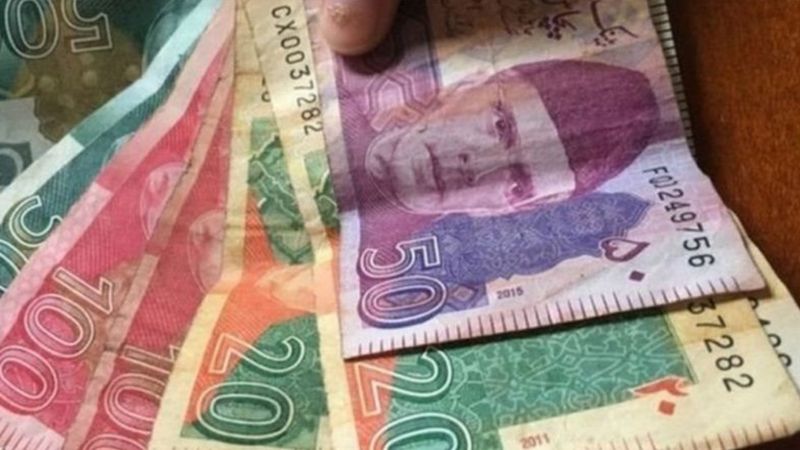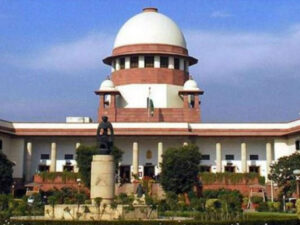
Federal Minister for Pakistan-administered Kashmir and Gilgit-Baltistan Affairs Ali Amin Gandapur has advised the people of Pakistan to “put less sugar in tea and eat less bread” due to rising inflation.
He was addressing a gathering in Pakistan-administered Kashmir. Meanwhile, commenting on the debate on inflation, he said, “If I put a hundred grains of sugar in tea and put nine less, will it become less sweet.”
He said, “Can’t we even sacrifice this much for our country, for our self-reliance? If I eat a hundred bites of bread, I cannot reduce nine bites of it?”
Users on social media are criticizing him by sharing this video of his speech.
However, this is not the first time that ministers or public representatives have given such advice to the public. Recently, Riyaz Fatyana, a member of the National Assembly of the ruling Pakistan Tehreek-e-Insaf (PTI), also gave the same advice as Ali Amin Gandapur.

Looking at the past, leaders of many parties including Pakistan Muslim League (Nawaz) have been talking like this. Former Prime Minister Nawaz Sharif himself had told the people of Pakistan to ‘eat less roti’.
In 1998, when Pakistan conducted a nuclear test, then Prime Minister Nawaz Sharif acknowledged that Pakistan may face tough economic sanctions from the US and the rest of the world.
Addressing the public on TV and radio, he cautioned about this, saying, “Tighten your waist and get ready to eat food only once and I will also be with you in this trouble.”
His party has run a savings campaign after coming to power several times. The PTI government had also announced a savings campaign in the early days itself.
However, is it appropriate for the government to advise people to save or ‘eat less bread’?

Dr. Sajid Amin, an economist at the Sustainable Development Policy Institute (SDPI), Islamabad, believes that such advice is tantamount to making fun of the poor.
According to him, saving advice or campaigns have never been a solution to inflation and never will be. “The job of the government is to increase the purchasing power of the common man or to improve his condition.”
However, the question is whether it is in the hands of the government to control inflation in the current situation at the global and national level? Dr. Sajid Amin says that for this it is first necessary to understand what are the reasons for the inflation reaching record levels in Pakistan in recent times.

- Why is inflation high in Pakistan?
According to economist Dr. Sajid Amin, there are three main reasons for the recent increase in inflation in Pakistan. Increase in the prices of goods in the world market, decrease in the value of Pakistani Rupee and the recent tax policies implemented by the government.
Clarifying the third point, he said that the government in Pakistan “increases taxes on commodities such as fuel to achieve revenue targets, thereby increasing their prices.”
In this way, the things of daily use which use fuel, obviously their prices go up. Fuel prices have increased recently in Pakistan.

- So can’t the government control them?
Dr. Sajid Amin says, “the government has no control over these factors.” According to him, the prices in the global market have increased against expectations and the Pakistani government has no control over their rise or fall.
At the same time, the import bill of Pakistan has been huge. According to Dr Sajid Amin, Pakistan is a net importer, which means that its total imports are more than its total exports and it is also importing food items like wheat, sugar. Therefore, unless this bill and trade deficit are reduced, there is little hope of improvement in the value of the rupee.
To increase revenue, the government has to increase taxes on fuel, electricity and gas.
Second, Pakistan has to go to the IMF once again for the new installment of the loan. The IMF will also ask the government to increase the tax on these items.”

- So can’t the government do anything?
According to Sajid Amin, it is not so, but the government can take many steps. According to him, the government needs to do two basic things to reduce the effect of inflation on the people.
Referring to the effective use of price control committees, he said, “First of all, there is a need to activate the administrative structure at the local level, which has not been done so far.”
Dr. Sajid Amin believes that such committees are very effective in controlling artificial increase in prices if they are used properly.
The second task is to end hoarding. He said that the highest inflation in Pakistan is around fuel or food items. In Pakistan, the commission increases manifold on commodity prices from the farmer’s farm to the point of sale.
“It directly causes inflation and this is an aspect which the government has the power to control.” A third method is also effective use of utility stores, through which the government can control inflation to some extent.
- Can inflation come down?
According to Dr Sajid Amin, “Once prices go up, they don’t come down or it is very difficult to bring them down.”
He said that it is too late for the present government to realize that inflation is a serious problem. After this, it took them too long to find out what was the reason for the rise in inflation.
However, he said that the government can do two things in such a way that the common man does not feel much effect of inflation.
One, the government should increase the scope of social security schemes. Second, there is a need to increase the income of the common man.
Apart from this, he believes that saving is the only solution.








